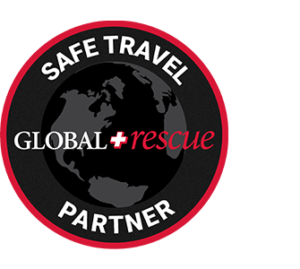Tips For Safe Travel
Pre-Travel Tips
- Educate yourself about your travel destination prior to departure.
- Have a Travel Health consultation from specialized medical professional at a travel health clinic before your next trip.
- Ensure your routine vaccines are up to date and that you have documentation as proof.
- Investigate if any specific travel vaccines that are recommended or required for your destination.
- Schedule appointments well in advance of travel to receive your travel vaccines and have sufficient time for immunity to develop.
- If you require medication, ensure your prescriptions are filled and bring enough for the duration of your trip plus extra in case of travel delays. Ensure they are in their originally labelled bottles.
- Pack any over-the-counter medications you may need for the duration of your trip.
- Verify if you have medical insurance and familiarize yourself with emergency contacts.
- Consider evacuation insurance.
- Consider Cancellation Insurance and Interruption Insurance.
Tips for Flying
- Moving around the cabin during long flights to reduce prolonged immobility, although this may not always be possible. A regular trip to the bathroom, for example every 2-3 hours, is a reasonable measure.
- Hand luggage should not be placed where it restricts movement of the legs and feet, and clothing should be loose and comfortable.
- Wearing eyeglasses rather than contact lenses can relieve or prevent discomfort to the eyes due to low humidity on flights.
- Limit caffeine and alcohol during flights as they have a diuretic effect (causing more urine to be produced).
Cruise Ships
- Before embarking, passengers should consult their doctor or travel health specialist on prevention guidelines and immunizations:
- the health status of the passenger, the duration of travel, the countries to be visited and likely activities ashore.
- all routinely recommended medical condition age-specific immunizations.
- Covid/influenza/pneumonia vaccination should be given regardless of season assuming availability.
- immunization and other (e.g., malaria) recommendations that apply to each country on the itinerary; and
- medication against motion sickness, particularly if the individual is prone to motion sickness.
- During the trip, passengers should carry out frequent hand washing, either with soap and water or using an alcohol-based hand sanitizer.
Travel Safety Tips
- Ensure all your travel documents, including your passport, and visas, are valid and up to date before you leave. Passports should be valid for 6 months from the date of your departure.
- Leave copies of your itinerary and important travel documents with trusted family or friends in case of any unforeseen emergencies during your travel.
- Familiarize yourself with local laws and customs. Take necessary precautions to avoid risky behaviour or drawing unnecessary attention to yourself.
- Try to remain vigilant of your surroundings and avoid circumstances that may put you at risk.
- Keep a close eye on your belongings. Do not wear jewelry or show electronics or cash of value as this may make you a target for thieves. Never leave personal effects or bags unattended, especially in public places.
Travel Health Advice
- Ensure that you drink bottled or boiled water to reduce the risk of water-borne diseases.
- Be sure to stay hydrated by drinking enough fluids during the day.
- Consume only properly prepared and cooked foods to avoid food-borne illnesses which contribute to travellers diarrhea. It is also advisable to avoid raw or undercooked foods as well as dairy products which are unpasteurized.
- Protect yourself from sun burns by regularly applying sunscreen or wear UV protective clothing and sunglasses.
- Protect yourself against insect bites by wearing insect repellent and using bug netting or closing window screens. Apply insect repellent regularly as needed to reduce the risk of contracting insect-borne diseases.
- Hand hygiene is one of the most effective ways to prevent the spread of germs and while travelling. Wash your hands regularly with soap and water or use hand sanitizer with at least 60% alcohol content to reduce the risk of acquiring illnesses, especially after using the washroom or touching surfaces in public areas.
- Limit your intake of alcohol. Abstain from recreational drugs.
- Practice safe sex or abstain to help reduce your risk of Sexually Transmitted Diseases.
- Get adequate rest and exercise to maintain your physical and mental well-being while traveling.
Click the button below to view vaccines administered at Arthur Travel Health.




